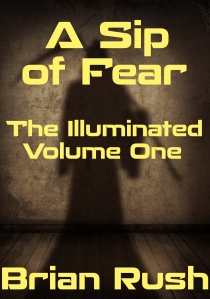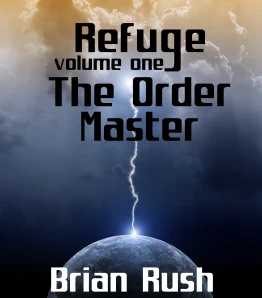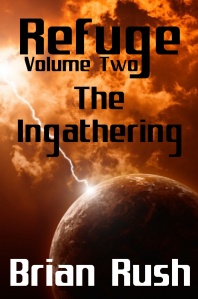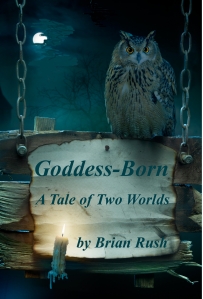 Continuing with last week’s post, this one explores the fact that I can’t write purely escapist fiction a bit further, this time in the context of the second series I began (and unlike The Star Mages, haven’t finished yet), A Tale of Two Worlds.
Continuing with last week’s post, this one explores the fact that I can’t write purely escapist fiction a bit further, this time in the context of the second series I began (and unlike The Star Mages, haven’t finished yet), A Tale of Two Worlds.
In original planning, which will hopefully happen one of these days, Tale will have four volumes: The Green Stone Tower, Goddess-Born, The People of the Sea, and Light and Shadow. Only the first two of these are written and published, so I can really only talk about them here.
As I noted last week, these stories aren’t for everyone — but then, no story is. If you like fiction that explores deep philosophical, spiritual, and political themes, then you may like mine. If not, you almost certainly won’t. Not that I don’t have (I hope) engaging characters and lots of action, but if you find you want to skip over the passages where people are talking about complicated subjects in order to get to that other stuff, maybe it’s not for you.
A Tale of Two Worlds
Here’s a run-down on the world and plot of The Green Stone Tower and Goddess-Born before going into the heady stuff.
These books are other-world fantasy rather than contemporary fantasy. They’re set, as the series title suggests, in two worlds, which are unimaginatively called the Old World and the New World by the denizens of the latter, and just “the world” and Faerie by those of the former. Humanity evolved on the Old World. During the long ages of prehistory, a few human beings (seven men and three women) had such powerful magic running through them that, in a death-rebirth apotheosis, they became deities. These Old Gods were worshiped in prehistoric times, but their worship and also the practice of magic are forbidden by law in the Old World societies where the story takes place, as The Green Stone Tower begins.
The youngest of the Old Gods is Malatant of Shadow, God of Evil. He achieved his divinity at the time when humanity was poised to discover agriculture and begin settling in cities. He’s a very important character in the series, and it was his plan that led to the separation of the two worlds. The gods wanted to help other human beings, and ultimately all of humanity, achieve divine status, but it was slow going. They spread their own genes among humans, but even when two deities mated the result was never a god or goddess (although usually a powerful sorcerer). Malatant came up with the idea of separating the mages from the rest of humanity so they could evolve more quickly, concentrated in their own society. To achieve this, he cunningly led the unmagical to hate, fear, and condemn the magical, and the latter were forced to flee for their lives. The gods led them away from the Old World to the New by means of the Green Stone Towers, which provided a link between the two and remained after the mages were gone. In the New World, the mages built a highly magical society, became immortal, and their descendants are today called the Faerie Folk by the humans of the Old World.
There are still mages in the Old World practicing in secret, and one of the main characters, Johnny Silverbell, is one of them. The story in the first book involves his transformation into a deity, along with that of Illowan, his Faerie lover. Along the way, there’s Johnny’s encounter with street thugs who try to castrate him, a trial for the crime of magic, seduction of Illowan by Malatant, some ambiguous prophecy, a bit of combat, some flashy sorcery, and a lot of mind-warping looks under the hood of reality.
Here’s a scene from Johnny’s preparation by Illowara of the Mysteries (one of the Old Gods) to make his transition to divinity:
Johnny sat on a chair like a throne in the middle of a big, dimly-lit room. Around him revolved spheres that provided the room’s only illumination. They spun slowly about with him at the center, as if he was the sun and they were planets. As he watched one of them, he saw that it contained an image of himself and Illowan making love in the clearing by the Green Stone Tower near Watercourse. He turned his attention to another sphere and watched himself studying magic with Master Seedcorn. Another showed Johnny playing Richard Silverbell’s ambertone and singing. Each of the spheres, of which there were an enormous number, displayed a scene from Johnny’s memory.
Illowara appeared at a great distance, perhaps the far end of the room, lit by the moonlight she always carried with her, and approached slowly. “These are more than your memories, Johnny. They are you – they are who you are, for your sense of self is all a thing of memory. It is an illusion. What you think you are is not what you really are. That is the Mystery that will be revealed to you now.”
The goddess approached one of the spheres closest to her and furthest from Johnny. It showed his sister Karen, age eight, popping a pillowcase over the head of Johnny, age six, and laughing as he stumbled about and began to cry. “You won’t miss this one much, I think,” Illowara said. She touched the sphere and its light went out. As it disappeared, Johnny frowned, thinking back on all the times Karen had picked on him when they were children, or rather trying to think back on them, for the memories had disappeared, all of them. He knew that Karen had been a monstrous tease when they were children, intellectually as if he had read of this fact and memorized it, but he could call no image to mind of any such event.
Johnny could not help it: he cried out in dismay. Illowara smiled, and if Johnny could still have remembered such things he might have noted the similarity to his big sister’s smile when she had pulled some especially clever and evil trick on him. She advanced to another distant sphere, this one showing Richard Silverbell frowning and expressing disapproval of everything in the house – its cleanliness, the behavior of the children, his wife’s choice of wine, everything. Illowara touched the sphere, it, too, went dark, and Johnny found that he could not remember the man who provided for his childhood and whom he had thought of as his father until recently. One sphere after another the Goddess touched.
One sphere after another ceased to be and took
Johnny’s memories with them. He lost all memory of his sisters, his mother, the life he had lived in Watercourse, his studies in school and of magic. His loves, Shavana and Annie and even Illowan, disappeared. His trial for witchcraft was forgotten. His passage of the Green Stone Tower lived no more in memory. His captivity by the Darklings and his rescue by the Rangers, and all his time in the world of Faerie and the Bright Place ceased to be. He no longer knew the name of the woman who moved among the spheres and worked such ruin on his mind. He had forgotten how to work magic, how to play the ambertone, how to ride a horse, how to read and write and do calculations, every skill he had ever acquired.
Finally she stood quite close to him and only three spheres remained. The one on the left showed Johnny engaged in conversation. The one on the right showed his face, up close, passing through one vivid emotion after another – love, fear, anger, puzzlement, joy, sadness, and so on. The one in the middle showed Johnny’s body, naked and apparently sleeping. “As they are for everyone, these three things are at the core of your self-perception,” the woman said. She indicated the sphere on Johnny’s left without touching it. “This is your ability to speak, your knowledge of language.” Her hand hovered over the sphere on Johnny’s right. “This is your emotional core, your feelings and the way you react to various situations.” Finally she nodded at the sphere in the center. “And this is your body itself, composed of your senses. If these last three memories are stripped away, what will be left? Whatever remains, that is the true self.”
Goddess-Born continues with the story of Johnny’s son Malcolm and Illowan’s daughter Sonia, and of the democratic revolution that sweeps over the Kingdom of Grandlock where Johnny was born and where both Malcolm and Sonia reside. A major part is played in that story by Lasatha, the Goddess of Wisdom, whose Book of Wisdom informs the nobly-born democracy advocate Anne Fircone as she attempts to overthrow the monarchy through her witty writing. The story in Goddess-Born includes a nefarious renegade priestess of Malatant, a love story between the two main characters, a last-minute rescue from the gallows, a battle against wolves, a war, a revolution, magical assassinations, and the banishing of a greater demon, but woven through all of that action are ideas like this:
A leader is chosen by the people who follow him, whether they know it or not. The leader must meet the approval of those who follow, or they will follow another instead.
For the leader to be among the wise, therefore, it is first necessary that a measure of wisdom be found in the people. The leader is elevated by the people’s choice, or upon elevation by another factor is at least maintained in power by the people’s tolerance. The people’s tolerance varies according to their wisdom, and their wisdom varies with the times.
At their most foolish, which is to say at their most frightened, the people follow a tyrant. In this, they surrender the power that should be theirs into the hands of another. If they are lucky, he proves to be a visionary who does great good. If they are unlucky (and this is much more common and likely), their lives become a nightmare for a time.
In their normal state, neither very foolish nor very wise, the people follow a venal leader, but keep him tightly bound with the restraints of law and of their own suspicion. Such a leader can do little good, but dares do little harm, and if he should dare, the law and the people restrain him.
If the people should become wise, they would follow a wise leader. But no generation has ever been wise.
And this:
“You are not going about this the right way, Madame Foresight,” she said. “Wisdom is not something that can be conveyed by words alone. Words can only be understood by those who are already wise, as you are, and a person may gain the wisdom to understand them only through painful experience.”
Anne sighed. “Painful experience is coming, I can see it. But I hoped to find another way, an easier way – or at least a way less costly in blood.”
“I know. Unfortunately, the price of wisdom is what it is. It cannot be negotiated, because the price and the learning are one. To lower the cost is to weaken the lesson.”
One of these days I’ll get around to writing the other two books of this series, which deal with the deceptive nature of good and evil, among other things. Along with lots of sea creatures, impossible odds of combat, and venomous jungle monsters. Should be fun — and as always, thoughtful.
Next week: Refuge.








